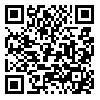BibTeX | RIS | EndNote | Medlars | ProCite | Reference Manager | RefWorks
Send citation to:
URL: http://sjsph.tums.ac.ir/article-1-55-en.html

 1, Davood Shojaeizadeh
1, Davood Shojaeizadeh 
 , Hasan Eftekhar Ardebili
, Hasan Eftekhar Ardebili 
 , Shamseddin Niknami
, Shamseddin Niknami 
 , Ebrahim Hajizadeh
, Ebrahim Hajizadeh 
 , Mohammad Alizadeh
, Mohammad Alizadeh 

Background and Aim: Many studies show that the only way to control diabetes and prevent its debilitating complications is continuous self-care. This study aimed to determine factors affecting self-care behavior of diabetic women in Khoy City, Iran based the extended theory of reasoned action (ETRA).
Materials and Methods: A sample of 352 women with type 2 diabetes referring to a Diabetes Clinic in Khoy City in West Azarbaijan Province, Iran participated in the study. Appropriate instruments were designed to measure the relevant variables (diabetes knowledge, personal beliefs, subjective norm, self-efficacy and behavioral intention, and self-care behavior) based on ETRA. Reliability and validity of the instruments were determined prior to the study. Statistical analysis of the data was done using the SPSS-version 16 software.
Results: Based on the data obtained, the proposed model could predict and explain 41% and 26.2% of the variance of behavioral intention and self-care, respectively, in women with type-2 diabetes. The data also indicated that among the constructs of the model perceived self-efficacy was the strongest predictor for intention for self-care behavior. This construct affected both directly and indirectly self-care behavior. The next strongest predictors were attitudes, social pressures, social norms, and intervals between visiting patients by the treating team.
Conclusion: The proposed model can predict self-care behavior very well. Thus, it may form the basis for educational interventions aiming at promoting self-care and, ultimately, controlling diabetes.
Received: 2010/11/21 | Accepted: 2011/05/17 | Published: 2013/08/9
| Rights and permissions | |
 |
This work is licensed under a Creative Commons Attribution-NonCommercial 4.0 International License. |



